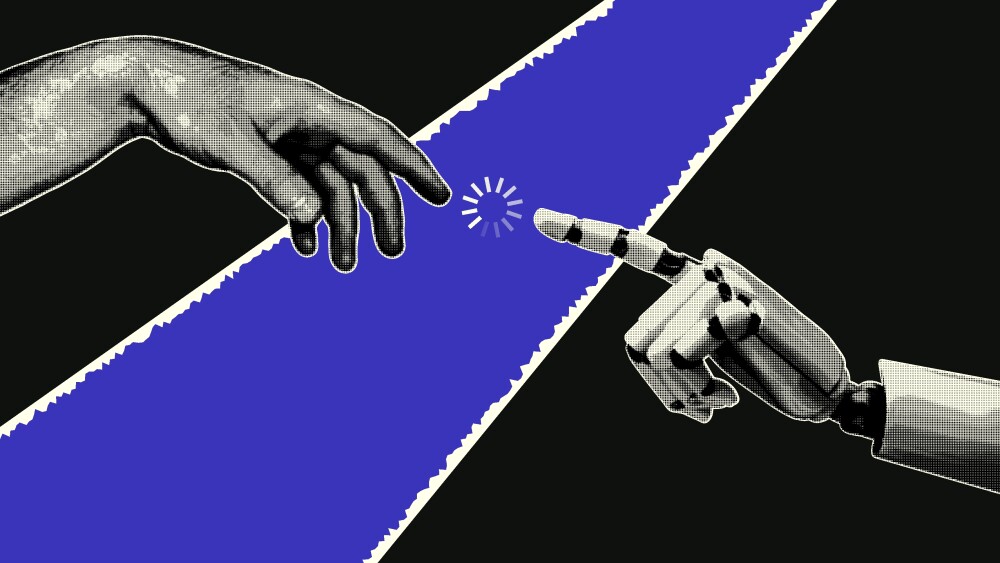Mulhouse, France, July 29th, 2009 - Rhenovia Pharma SAS, a biopharmaceutical company specialized in the development and optimization of drugs for Alzheimer's and other diseases of the brain, announces today that it has signed a 4-year contract with the University of Southern California (USC) and the NIH. The contract is part of a Bioengineering Research Partnership Program awarded by the National Institute of Neurological Disorders and Stroke (NINDS), part of the US National Institutes of Health.
Rhenovia Pharma will be partnered by two laboratories of the University of Southern California, Los Angeles (USC). These are the Laboratory of Biological Sciences (LAS) under Dr Michel Baudry and the Laboratory of Biomedical Engineering (VSoE) under Dr Theodore Berger. The three partners will receive a total amount of USD 2.3 million (EUR 1.65 million) in support of their research programs. Rhenovia will perform a service partnership activity as subcontractor and will receive USD 440,000.
The program associates two prestigious academic groups with a fast growing drug discovery start up in a joint effort to gain understanding of the cellular mechanisms that underly brain functions and diseases, and to develop technological tools facilitating the discovery and development of new therapeutic agents to treat brain diseases.
The objective of the academic groups is to intensify the development of unique mathematical modeling and computer simulation tools to systematically explore molecular processes relevant to diseases of the brain. These include the processes underlying glutamatergic synaptic transmission, and the effects of these synaptic processes on multi-synaptic cellular dynamics, and ultimately on a small network of hippocampal neurons.
Using its experience of the pharmaceutical industry and its expertise in drug discovery, Rhenovia will have the task of integrating the cellular and molecular mechanisms that serve as drug targets into these mathematical models and to perform the optimization and validations needed for their commercial application.
"The NINDS award shows that NIH scientific experts recognize the innovative nature of Rhenovia's biosimulation technology platform - and demonstrates that Rhenovia can generate cash with its platforms," said Dr. Serge Bischoff, CEO of Rhenovia Pharma. "This confirms our belief that Rhenovia's biosimulation approach in CNS can make a unique contribution to developing drugs for brain diseases. This joint project with academic laboratories will allow Rhenovia to continue the development of its biosimulation platform, which is already operational and has been successfully used in a contract with a big pharmaceutical company. It will also help consolidate Rhenovia's business and expand our service offer to pharmaceutical and biotechnology companies to identify novel drug targets and therapeutic indications. This contract strengthens Rhenovia's leadership in using unique biosimulation approaches to optimize and accelerate drug discovery and development."
Why Biosimulation for brain diseases
Biosimulation consists in the use of computational models that provide a dynamic and quantitative description of a number of biological, pathological, and pharmacokinetic processes in order to understand complex biological processes. Biosimulation is particularly appropriate for use in CNS disease research. Unmet medical needs in this field, especially for Alzheimer's disease, are mostly due to the fact that all brain pathologies are extremely complex, multifactorial and dynamic. Furthermore, brain diseases are most probably of multiple origins and involve separate physiological mechanisms, multiple pathways and neuronal/glial interactions. They might also affect dynamic features such as feedback/feed-forward regulations and cross-talk between extracellular and intracellular mechanisms. For these reasons, the conventional drug discovery approach followed by most pharmaceutical companies might not be sufficient to address the multiple facets of these diseases. In particular, the single-target, single-mechanism approach so suited for high-throughput screening may not result in optimal identification of candidate therapeutics.
About Rhenovia Pharma SAS
Rhenovia Pharma SAS is a biopharmaceutical company specialized in the development and optimization of drugs for Alzheimer's and other diseases of the brain. It has developed and implemented a unique technology in a biosimulation platform. Rhenovia believes it has developed the first platform to simulate mechanisms involved in learning and memory and in a variety of brain functions related to the balance between excitation and inhibition. More than 90 percent of drugs in this area are active in the synapse and directly or indirectly on excitation and inhibition. It is making this platform available in its RHEDDOS program, aimed at pharmaceutical and biotechnology companies wishing to extend drug life cycle, develop new drug combinations and identify new targets for therapeutic molecules.
Rhenovia was founded in 2007 to exploit technology developed at the University of Southern California for which it acquired the exclusive worldwide license. In addition to the founders, the company has built a management team that combines extensive scientific and management experience in large pharmaceutical companies. The company has raised around EUR 1.4 million in investor funding as well as various government grants and loans and funding from Rhenovia's founders and team members.
More information : http://www.rhenovia.com
Rhenovia Pharma will be partnered by two laboratories of the University of Southern California, Los Angeles (USC). These are the Laboratory of Biological Sciences (LAS) under Dr Michel Baudry and the Laboratory of Biomedical Engineering (VSoE) under Dr Theodore Berger. The three partners will receive a total amount of USD 2.3 million (EUR 1.65 million) in support of their research programs. Rhenovia will perform a service partnership activity as subcontractor and will receive USD 440,000.
The program associates two prestigious academic groups with a fast growing drug discovery start up in a joint effort to gain understanding of the cellular mechanisms that underly brain functions and diseases, and to develop technological tools facilitating the discovery and development of new therapeutic agents to treat brain diseases.
The objective of the academic groups is to intensify the development of unique mathematical modeling and computer simulation tools to systematically explore molecular processes relevant to diseases of the brain. These include the processes underlying glutamatergic synaptic transmission, and the effects of these synaptic processes on multi-synaptic cellular dynamics, and ultimately on a small network of hippocampal neurons.
Using its experience of the pharmaceutical industry and its expertise in drug discovery, Rhenovia will have the task of integrating the cellular and molecular mechanisms that serve as drug targets into these mathematical models and to perform the optimization and validations needed for their commercial application.
"The NINDS award shows that NIH scientific experts recognize the innovative nature of Rhenovia's biosimulation technology platform - and demonstrates that Rhenovia can generate cash with its platforms," said Dr. Serge Bischoff, CEO of Rhenovia Pharma. "This confirms our belief that Rhenovia's biosimulation approach in CNS can make a unique contribution to developing drugs for brain diseases. This joint project with academic laboratories will allow Rhenovia to continue the development of its biosimulation platform, which is already operational and has been successfully used in a contract with a big pharmaceutical company. It will also help consolidate Rhenovia's business and expand our service offer to pharmaceutical and biotechnology companies to identify novel drug targets and therapeutic indications. This contract strengthens Rhenovia's leadership in using unique biosimulation approaches to optimize and accelerate drug discovery and development."
Why Biosimulation for brain diseases
Biosimulation consists in the use of computational models that provide a dynamic and quantitative description of a number of biological, pathological, and pharmacokinetic processes in order to understand complex biological processes. Biosimulation is particularly appropriate for use in CNS disease research. Unmet medical needs in this field, especially for Alzheimer's disease, are mostly due to the fact that all brain pathologies are extremely complex, multifactorial and dynamic. Furthermore, brain diseases are most probably of multiple origins and involve separate physiological mechanisms, multiple pathways and neuronal/glial interactions. They might also affect dynamic features such as feedback/feed-forward regulations and cross-talk between extracellular and intracellular mechanisms. For these reasons, the conventional drug discovery approach followed by most pharmaceutical companies might not be sufficient to address the multiple facets of these diseases. In particular, the single-target, single-mechanism approach so suited for high-throughput screening may not result in optimal identification of candidate therapeutics.
About Rhenovia Pharma SAS
Rhenovia Pharma SAS is a biopharmaceutical company specialized in the development and optimization of drugs for Alzheimer's and other diseases of the brain. It has developed and implemented a unique technology in a biosimulation platform. Rhenovia believes it has developed the first platform to simulate mechanisms involved in learning and memory and in a variety of brain functions related to the balance between excitation and inhibition. More than 90 percent of drugs in this area are active in the synapse and directly or indirectly on excitation and inhibition. It is making this platform available in its RHEDDOS program, aimed at pharmaceutical and biotechnology companies wishing to extend drug life cycle, develop new drug combinations and identify new targets for therapeutic molecules.
Rhenovia was founded in 2007 to exploit technology developed at the University of Southern California for which it acquired the exclusive worldwide license. In addition to the founders, the company has built a management team that combines extensive scientific and management experience in large pharmaceutical companies. The company has raised around EUR 1.4 million in investor funding as well as various government grants and loans and funding from Rhenovia's founders and team members.
More information : http://www.rhenovia.com




